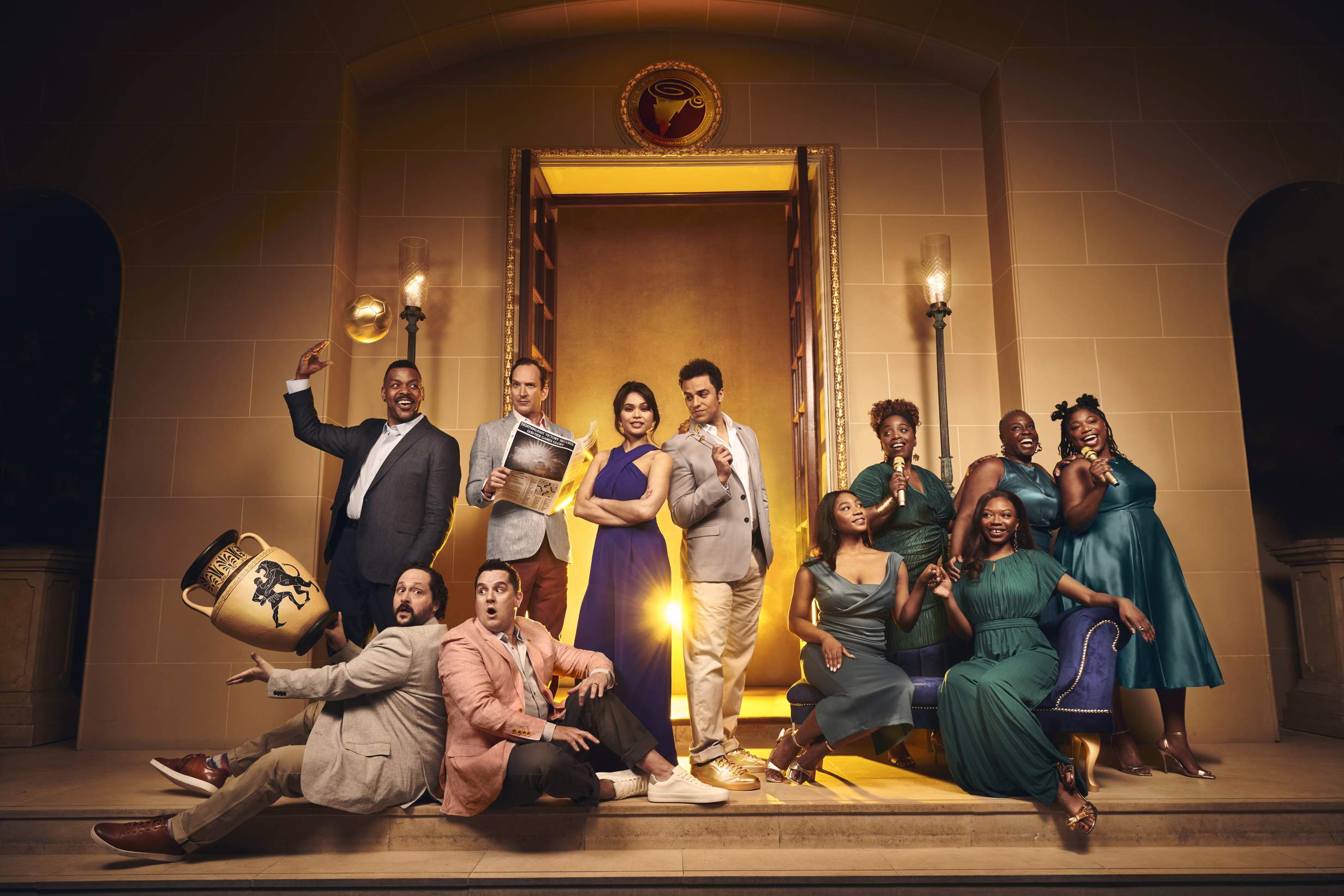

Lacking in Laughs and Access: The Disneyfication of the West End
Support our mission to provide fearless stories about and outside the media system
Packed with exclusive investigations, analysis, and features
SUBSCRIBE TODAY
If the old oxymoron about Britain and America being divided by a common language is true, then it can also be said that our culture is coming between us. Specifically, our sense of humour.
Quite what a chasm it has become was brought home to me when I had to sit through two-and-a-half hours of Hercules at the Theatre Royal in Drury Lane, London.
It replaces Frozen at the venue which opened in 2021 and, once again, it's a show that's already been established by Disney as a strong money-spinning brand - it, too, was first a big hit on celluloid - and its executives across the Atlantic have thrown so much money at promoting the stage version that it looks like it's too big to fail.
Whether it deserves not to fail is another matter, however, and, unlike Frozen, which was directed by a British director in Michael Grandage - I'd say our very best - this one has an American at the helm in Casey Nicholaw.
Grandage understood something about his fellow countrymen and women: they may well have a weak spot for big budget spectaculars, but they also want at least a veneer of wit and sophistication. Above all things, they want the jokes to be funny. They don't like to have their intelligence totally insulted.
Regrettably, the American has ensured Hercules possesses not a single intellectual muscle - let alone a funny bone - and the boring, if garish and ostentatious, show that he has come up with has inevitably been panned by the critics as pre-packaged and homogenised theatrical Muzak.
'Is a Sexuality-Blind Approach to Casting Theatre Roles Always the Right Approach?'
Sexuality is hard to define and actors should not be unduly confined when it comes to what parts are open to them, writes Tim Walker
Tim Walker
I wondered during Hercules how it was possible for its writers Robert Horn and Kwame Kwei-Armah to have scripted a show that lasts as long as this one without even once managing to raise a grudging smile or even a limp concession that something mildly interesting had just been uttered.
Among London producers I've heard anxious talk about the "Disneyfication" of the West End and, perhaps, in a time of globalisation, there is a grim inevitability to this happening.
Hercules is certainly a world away from the ideals of Laurence Olivier who used to say that theatre should "glamorise intellect" and help to humanise the punters and expand their emotional literacy. Generations of artistic susceptibilities certainly separate this musical from, say, My Fair Lady or Oklahoma! and it seems almost sacrilegious to mention them in the same sentence.
Disney's London theatre subsidiary might reasonably be said to be in the business of glamorising only inanity, and, so far from humanising theatregoers, it can reasonably be said to be zombifying them.
Packed with exclusive investigations, analysis, and features
SUBSCRIBE TODAY
If the old oxymoron about Britain and America being divided by a common language is true, then it can also be said that our culture is coming between us. Specifically, our sense of humour.
Quite what a chasm it has become was brought home to me when I had to sit through two-and-a-half hours of Hercules at the Theatre Royal in Drury Lane, London.
It replaces Frozen at the venue which opened in 2021 and, once again, it's a show that's already been established by Disney as a strong money-spinning brand - it, too, was first a big hit on celluloid - and its executives across the Atlantic have thrown so much money at promoting the stage version that it looks like it's too big to fail.
Whether it deserves not to fail is another matter, however, and, unlike Frozen, which was directed by a British director in Michael Grandage - I'd say our very best - this one has an American at the helm in Casey Nicholaw.
Grandage understood something about his fellow countrymen and women: they may well have a weak spot for big budget spectaculars, but they also want at least a veneer of wit and sophistication. Above all things, they want the jokes to be funny. They don't like to have their intelligence totally insulted.
Regrettably, the American has ensured Hercules possesses not a single intellectual muscle - let alone a funny bone - and the boring, if garish and ostentatious, show that he has come up with has inevitably been panned by the critics as pre-packaged and homogenised theatrical Muzak.
'Is a Sexuality-Blind Approach to Casting Theatre Roles Always the Right Approach?'
Sexuality is hard to define and actors should not be unduly confined when it comes to what parts are open to them, writes Tim Walker
Tim Walker
I wondered during Hercules how it was possible for its writers Robert Horn and Kwame Kwei-Armah to have scripted a show that lasts as long as this one without even once managing to raise a grudging smile or even a limp concession that something mildly interesting had just been uttered.
Among London producers I've heard anxious talk about the "Disneyfication" of the West End and, perhaps, in a time of globalisation, there is a grim inevitability to this happening.
Hercules is certainly a world away from the ideals of Laurence Olivier who used to say that theatre should "glamorise intellect" and help to humanise the punters and expand their emotional literacy. Generations of artistic susceptibilities certainly separate this musical from, say, My Fair Lady or Oklahoma! and it seems almost sacrilegious to mention them in the same sentence.
Disney's London theatre subsidiary might reasonably be said to be in the business of glamorising only inanity, and, so far from humanising theatregoers, it can reasonably be said to be zombifying them.
Activity